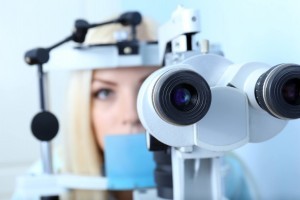What’s the Right Age to Get LASIK?
Since the 1990s, LASIK has been available in Canada and the United States. LASIK surgery reshapes the cornea in order to correct vision. The procedure has an extremely high success rate.
The most common age range for LASIK is those between the 20 to 40-year range. As research continues and new technology develops, the profile of an ideal candidate is changing. We are seeing an increase of patients both younger and older than the traditional age bracket.
Other Causes of Vision Change
There are other factors to consider that might impact your vision despite having LASIK. For instance, the hormonal changes of pregnancy can alter vision.
Also, as we age, the muscle inside our eyes (not treated by laser surgery) stiffens over time rendering it more difficult to read up close like a restaurant menu or a newspaper. We call this condition presbyopia. Alas, it’s a mild condition that requires the use of reading glasses for many of their forties.
The Right Age for Vision Correction Surgery
The age limit for LASIK is still rising as baby boomers elect Lasik surgery more and more.
The age boundaries for successful LASIK candidates are blurring. Just because you are over 50 doesn’t mean this surgery is no longer a possibility. Healthy people in their sixties and seventies can have outstanding results. Take our patient, Jack, who was 71 when he had LASIK with Dr. Rothman.
The world’s population is redefining aging through a healthy diet, exercise, and cosmetic procedures. In particular, the results from refractive surgery seem to complement active lifestyles.
Senior Patients See Great Result after Lasik
If you are an older patient, your LASIK surgeon will examine your eyes to make sure they are healthy for surgery. First and foremost, the lens must be clear. Your ophthalmologist will check the macula and look for basement membrane abnormalities.
Family history is relevant for candidates too; diabetes, glaucoma, and corneal diseases might increase risks.
While Lasik surgery treats nearsightedness; not farsightedness, there is the option called monovision that reduces the amount of time people have to rely on reading glasses. Learn more about Monovision in our blog.
Drug side effects and interactions can be reasons your ophthalmologist may decide LASIK is not appropriate. Certain medications can interfere with the surgery’s success, and some pharmaceuticals can be downright dangerous. Also, LASIK will not prevent cataracts from forming, therefore patients who have developing cataracts may do better with lens exchange. Ophthalmologists will evaluate each candidate’s suitability on a case-by-case basis, depending on the degree of myopia, hyperopia, and astigmatism present. Cataract surgery will not exclude the possibility of LASIK later on, though it is best to get the patient’s topography measurement before surgery because this will help attain better results in future procedures.
What is the best age to get LASIK?
Though the eye continues to change until 20 to 24 years of age, LASIK is FDA-approved for those over 18. Many doctors suggest waiting until the patient’s eyesight has stabilized for two, full years before undergoing refractive surgery.
The optimal age for LASIK is traditionally in the mid-twenties.
The advancements in LASIK vision correction over the years have been phenomenal and if you’re interested in finding out if you’re a good fit for LASIK take our free Self-Evaluation or schedule a consultation today!

